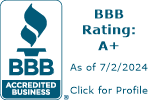Retiring in Canada can be attractive for Americans looking for a change of scenery, a lower cost of living, or access to a universal healthcare system. Canada offers numerous benefits for American retirees as a neighbouring country with a stable economy and high quality of life.
However, navigating the process of retiring in Canada as an American involves several important considerations, from immigration requirements to tax implications. In this comprehensive guide, we’ll cover everything you need to know to make an informed decision and successfully retire in Canada.
Eligibility and Immigration Options
The first step in retiring in Canada as an American is determining your eligibility and selecting the appropriate immigration pathway. Canada doesn’t offer a specific retirement visa, To stay longer than six months (180 days), you’ll need to obtain a permanent residency status. There are two ways to do it:
Permanent Residency
The most common route is to apply for permanent residency through programs like the Federal Skilled Worker Program or the Provincial Nominee Program. These pathways evaluate candidates based on factors like age, education, work experience, and language proficiency.
- Express Entry is Canada’s main system for managing skilled worker applications for permanent residence. It includes programs like the Federal Skilled Worker Program, Canadian Experience Class, and Federal Skilled Trades Program. Your chances of obtaining Canada PR after the age of 40 are quite slim due to the decreasing age factor, but there are ways to address this.
- Each province has its PNP streams targeting different groups such as skilled workers, students, and business people. If nominated, you get additional points in the Express Entry system, which can speed up the process.
Family Sponsorship
- You can immigrate to Canada as a retiree if you have adult Canadian (citizens or permanent residents) children who can sponsor you.
- A Canadian spouse or close family member may be able to sponsor your application for permanent residency.
Business Immigration
- There are federal and provincial business immigration programs that can lead to Canadian permanent residency.
- Many experienced applicants who do not qualify for Express Entry or other pathways aimed at young professionals choose these options instead.
- Most investment immigration pathways require a minimum net worth and also have specific funds requirements.
Temporary Resident Visa
- Many retirees opt to live in Canada part-time, spending up to six months at a time as visitors.
- If you wish to stay longer than the standard six months, you can apply for an extension of your visitor visa.
- A multiple-entry visa allows you to come and go from Canada for up to 10 years or until your passport expires. Unfortunately, Canada has ended the automatic issuance of 10-year multiple-entry visas.
- Consider splitting your year between Canada and another country, such as spending summers in Canada and winters in a warmer climate.
- In some cases, you might be eligible for a Temporary Resident Permit (TRP) if you have specific reasons that justify staying in Canada beyond the usual visitor period. This could include medical treatment, family matters, or other unique circumstances.
Living in Canada as a US Citizen: What You Need to Know
Financial Considerations to Retire in Canada
Retiring in Canada comes with its own set of financial implications that you’ll need to plan for:
- Cost of Living: The cost of living varies and depends on multiple factors. A family living in Seattle may find everything cheaper in Vancouver; however, salaries are generally higher in Seattle, allowing them to afford more when they visit Vancouver. Living expenses in BC are noticeably higher, particularly in housing when comparing prices between Victoria, Vancouver, and Florida. So it majorly depends on location, housing, transportation, individual income and lifestyle.
- Taxes: You’ll need to file taxes in both the USA and Canada, but there are tax treaties in place to help avoid double taxation. It’s essential to understand the tax obligations in both countries and consult with a tax advisor to ensure compliance.
- Property Ownership: You can own property in Canada even as a visitor, which can be a great option if you plan to split your time between the USA and Canada. Renting initially can give you more flexibility to try different neighbourhoods before committing to a home.
- Social Security and Pensions: As a U.S. citizen, you can roll over your Social Security benefits or pension from the USA. However, it’s unlikely you’ll receive retirement benefits from the Canadian government.
- Healthcare Costs: Canada has a high-quality healthcare system, but retirees should ensure they have adequate health insurance. Supplementary private insurance may be needed for expenses like prescription drugs, vision, and dental care. Explore private plans or check if your current insurance covers international healthcare.
Make your move to Canada today!
Move to Canada from the USA with the help of Licensed Experts.
Healthcare and Insurance
Access to healthcare is a significant factor for many American retirees considering a move to Canada. Here’s what you need to know:
- Medicare Eligibility: As a U.S. citizen, you’ll retain your Medicare coverage, but it may have limited utility in Canada. You’ll need to explore options for supplemental private insurance to cover services not included in the Canadian public healthcare system.
- Canadian Medicare: Once you’ve obtained permanent residency in Canada, you’ll be eligible for the country’s public healthcare system, known as Medicare. This provides coverage for a wide range of essential medical services, but you may still need private insurance for additional expenses.
- Private Health Insurance: Consider purchasing private health insurance to cover services not included in the Canadian Medicare system, such as prescription drugs, vision, and dental care. This can help minimize out-of-pocket expenses.
- Pre-Existing Conditions: Be aware that pre-existing medical conditions may affect the availability and cost of private health insurance in Canada. It’s essential to research and compare policies carefully.
Tax Implications
Retiring in Canada as an American comes with these tax considerations:
- Income Taxes: As a Canadian resident, you’ll be subject to both federal and provincial income taxes. The tax rates and thresholds can vary significantly depending on your province of residence.
- Pensions and Retirement Accounts: Coordinate with financial advisors to ensure a smooth transition of your U.S. retirement accounts and pensions to Canada, taking advantage of any applicable tax treaties.
- Estate and Inheritance Taxes: Canada and the U.S. have a tax treaty that helps mitigate double taxation on estates and inheritances. However, it’s important to understand the specific rules and regulations in both countries.
- Property Taxes: Depending on the location of your retirement property in Canada, you may be subject to municipal and provincial property taxes.
Living in Canada as a Retiree
First off, do your research on the cost of living in various regions. Places like Vancouver can be pricey, especially housing, but smaller towns or less touristy provinces might offer a more affordable lifestyle.
The climate is something to consider as well. If you love mild winters and lots of rain, the West Coast is ideal. But if you enjoy the charm of snow and don’t mind a colder climate, the Eastern provinces or the Rockies offer stunning landscapes and plenty of winter activities.
Culturally, there’s a lot to love about Canada. The people are incredibly friendly, and there’s a real emphasis on community and social responsibility. In Quebec, you’ll experience a rich French culture, so a little French can go a long way. In general, Canadians are quite progressive and welcoming to newcomers.
Social connections are vital, so get involved with local clubs, volunteer, or join expat groups. I found a local hiking club, and it’s been a great way to meet people and stay active.
Need help?
Mr. Keshav Sharma, a licensed Regulated Canadian Immigration Consultant, and his team of seasoned professionals have extensive experience guiding retiring, retired and semi-retired Americans through the process of moving to Canada.
Whether you’re looking to take advantage of Canada’s universal healthcare system, lower cost of living, or simply experience a change of scenery, our experts can help you navigate the complex immigration requirements. We’ll work closely with you to determine the best pathway, whether that’s permanent residency, investor programs, or temporary visas.
You can contact our experts today to get started on your Canada visa application.









